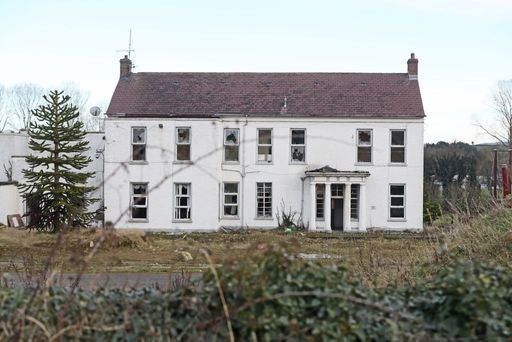‘Burden of shame’: Rape victims put in NI homes for unmarried mothers and their children, investigation finds
Some 10,500 women entered mother and baby homes across NI from 1922 until 1990

Your support helps us to tell the story
From reproductive rights to climate change to Big Tech, The Independent is on the ground when the story is developing. Whether it's investigating the financials of Elon Musk's pro-Trump PAC or producing our latest documentary, 'The A Word', which shines a light on the American women fighting for reproductive rights, we know how important it is to parse out the facts from the messaging.
At such a critical moment in US history, we need reporters on the ground. Your donation allows us to keep sending journalists to speak to both sides of the story.
The Independent is trusted by Americans across the entire political spectrum. And unlike many other quality news outlets, we choose not to lock Americans out of our reporting and analysis with paywalls. We believe quality journalism should be available to everyone, paid for by those who can afford it.
Your support makes all the difference.Victims of rape and incest were put in homes for unmarried mothers and their children in Northern Ireland and victimised again, first minister Arlene Foster has said.
Ms Foster's comments came ahead of the publishing of a report into the treatment of women and girls at homes and Magdalene laundries across NI over a 68-year period.
Some 10,500 women entered mother and baby homes across NI from 1922 until 1990, when the last such facility closed.
It was originally thought around 7,500 women had gone into the facilities, which were mostly church-run.
A "victim-centred" independent investigation has been ordered by Stormont ministers and Ms Foster has pledged the voices of survivors would be heard "loudly and clearly".
She added: "Children were raped or victims of incest then they were victimised again by being put into these homes.
"It was not their fault that they were raped or the victims of incest yet they were the ones who suffered and it appears to me that those who perpetrated the crime went scot-free."
About one-third of those admitted were aged under 19 and most were between 20 and 29. The youngest was 12.
A research report by academics at Queen's University and Ulster University into the operation of the institutions examined eight mother and baby homes, a number of former workhouses and four Magdalene laundries, the leader of Northern Ireland's devolved administration said.
The report was due to be made public later on Tuesday afternoon.
Mrs Foster added: "It is with huge regret that we acknowledge the pain of those experiences and the hurt caused to women and girls who did nothing more than be pregnant outside of marriage, some of them criminally against their will.
"None of us should be proud of how our society shunned women in these circumstance and of their experiences while resident in these institutions."
The first minister said Tuesday marked the start of a process to allow the long-silenced voices of women and their children to be heard.
"For too long they have carried a burden of shame and secrecy.
"Too often their treatment from those who were in positions of power and trust caused them real harm and a lifetime of trauma."
Deputy first minister Michelle O'Neill said the report gave a "sad and troubling" insight into the lived experiences of the thousands of women and girls, and their now adult children, who suffered in these institutions.
"The harsh treatment of these women was cruel, unjust and inhumane," she said.
Retired senior police officer Judith Gillespie led the review and said a public inquiry was not off the table.
She said: "It is so important that that investigation or inquiry is actually co-designed with survivors, that they have agency in this process.
"This is a group of people that have had power and choices taken away from them for so long and now we are giving the choice back."
Patrick Corrigan, Northern Ireland director of Amnesty International, said the report shed new light on "industrial-scale" suffering experienced by generations of women and girls.
"The researchers have done a remarkable job of starting to document the many ways in which thousands of young lives were scarred by these cruel institutions, scars which remain to this day," he said.
Most mother and baby homes were run by either by the Catholic Church or Protestant organisations. The Presbyterian Church in Ireland also ran some of the homes investigated and issued an apology as the report was published.
A report earlier this month on similar institutions south of the border in the Irish Republic, where such they were overwhelmingly run by the Catholic Church, found that 9,000 children had died in them in a 70-year period.
“Women who experienced life in the laundries ... described the fear they felt about their fate,” the report said. One man whose mother had lived in one of the homes said she could not talk about her time there without sobbing.
“In the majority of testimony gathered ... women provided vivid accounts of being made to feel ashamed about their pregnancy and suggested that the atmosphere was authoritarian and judgmental,” said the report.
Additional reporting by agencies



Join our commenting forum
Join thought-provoking conversations, follow other Independent readers and see their replies
0Comments